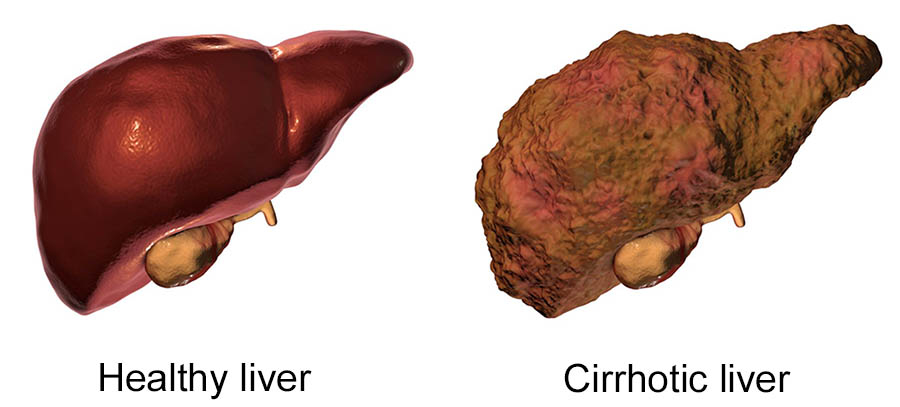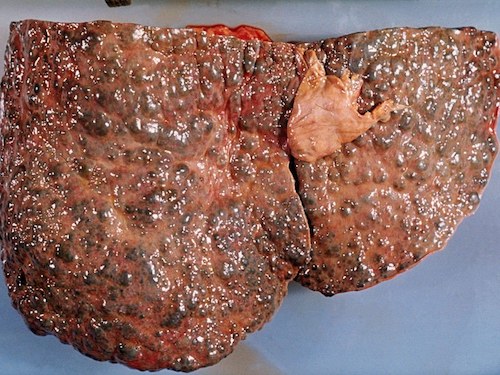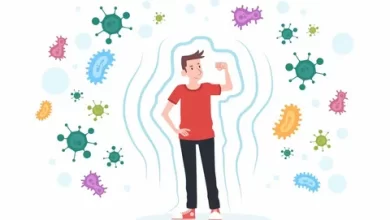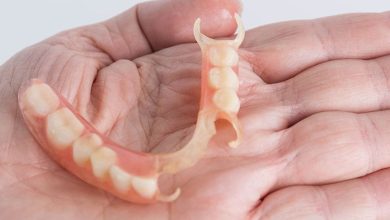How to Prevent Cirrhosis of the Liver


Cirrhosis is a late stage of scarring (fibrosis) of the liver caused by many forms of liver diseases and conditions, such as hepatitis and chronic alcoholism.
Each time your liver is injured whether by disease, excessive alcohol consumption or another cause it tries to repair itself.
Table of Contents
Symptoms of Cirrhosis of the Liver
Individuals with cirrhosis may have few or no symptoms and signs of liver disease. Some of the symptoms may be nonspecific, that is, they don’t suggest that the liver is their cause. Some of the more common symptoms and signs of cirrhosis include:
- Yellowing of the skin (jaundice) due to the accumulation of bilirubin in the blood
- Fatigue
- Weakness
- Loss of appetite
- Itching
- Easy bruising from decreased production of blood clotting factors by the diseased liver
Individuals with cirrhosis also develop symptoms and signs from the complications of cirrhosis
Treatment: Home Care and Medications
Your treatment depends on how badly your liver is injured. The goal is to protect the healthy tissue you have left.
The first step is to treat the condition that’s causing your cirrhosis to prevent any more damage. This could mean a few different things:
- Stop drinking alcohol right away. Your doctor can suggest a treatment program for addiction.
- Lose weight if you are obese, especially if your cirrhosis is caused by fat buildup in your liver.
- Take medications if you have hepatitis B or C.
You can also take medications to ease symptoms like itching, fatigue, and pain.
Your doctor will also want to treat any complications that can happen with cirrhosis.
He may suggest things like:
- Low-sodium diet. This can help control swelling. Your doctor may also ask you to take medications for this problem. If you have a severe fluid buildup, you may need to get it drained.
- Blood pressure medications. They can lessen bleeding inside your body that’s caused by swollen and burst blood vessels. You may need surgery if you have severely enlarged veins.
- Antibiotics and vaccinations. They can treat and prevent other infections.
Your doctor may also suggest medications to lessen a buildup of toxins, if that’s a problem for you. And if you have inflammation in your liver, steroids can help.
Your doctor may recommend regular testing to make sure you don’t get liver cancer, which can be a complication of cirrhosis.
If your cirrhosis is severe, you may need a liver transplant. It’s a major operation. You’ll likely need to get on a waiting list for a new liver from an organ donor who has died. Sometimes people with cirrhosis can get part of a liver that is donated from someone who is living.
What to Expect
Usually, the damage that’s already been done by cirrhosis can’t be undone. But your liver can still work and bounce back even if two-thirds of it has been destroyed or removed.
If your cirrhosis is caused by long-term hepatitis, treating the infection can lower your chances of more problems if the damage is caught early.
Most people with cirrhosis that’s found in its early stage can live healthy lives.
If you are obese or have diabetes, losing weight and controlling your blood sugar can lessen damage caused by fatty liver disease.
If the damage is caused by alcohol abuse, you can manage the cirrhosis better if you stop drinking right away.
For any important information please contact us Email GadgetsNg info@gadgetsng.com
[Button id="1"]



